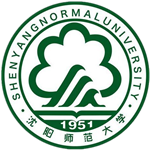School Badge

About Shenyang Normal University
Founded in 1951, Shenyang Normal University is affiliated to the People’s Government of Liaoning Province. It is a multidisciplinary university covering nine disciplines including philosophy, economics, law, education, literature, science, engineering, management, and art. . At the beginning, it was named Northeast Education College. In 1953, it was renamed Shenyang Normal University after the approval of the State Council. It was one of the two first and most influential undergraduate normal colleges in Northeast China. It was decided by the People’s Government of Liaoning Province in 2002 and reported to the Ministry of Education. Approved, Shenyang Normal University merged with Liaoning Institute of Education to form Shenyang Normal University. The school covers an area of 1,228,282.7 square meters, a building area of 942,220.78 square meters, and a collection of more than 1.8 million books. The school has a total of 20,272 full-time undergraduates, 3,670 postgraduates, and 1,100 long-term and short-term international students.The Liaoning Basic Education Teaching and Research Training Center, Liaoning Education Administration Institute, and Liaoning Audio-visual Education Center are located in Shenyang Normal University. The school currently has 26 secondary colleges and 23 school-owned libraries, ministries, centers, research institutes and affiliated institutions. There are 1 first-class disciplines in Liaoning colleges and universities, 1 major provincial science and technology platform, 5 engineering (technical) research centers, 11 key laboratories, 26 key research bases, and 10 innovation teams. There are 24 first-level discipline authorization points for master’s degree, 11 professional degree authorization points, and 12 provincial graduate education innovation projects. 76 undergraduate majors, 4 national characteristic majors, 1 national comprehensive reform pilot major, 4 national quality open courses, 1 national teaching teacher, 1 national experimental teaching demonstration center, and national off-campus practice There are 2 education bases, 1 training base for excellent legal talents, 1 reform project of the excellent kindergarten teacher training plan, and 1 reform project of the excellent middle school teacher training plan. 5 provincial-level superior characteristic majors, 9 provincial-level characteristic (demonstrative) majors, 6 provincial-level comprehensive reform pilot majors, 2 provincial-level key support majors, 3 provincial-level engineering talent training model reform pilot majors, provincial-level 2 pilot majors for innovation and entrepreneurship education reform, 2 provincial-level curriculum system internationalization pilot majors, 7 provincial-level demonstration majors for application-oriented transformation, 1 provincial-level college student entrepreneurship project selection base, and provincial-level college student off-campus practice education base 10 There are 10 provincial-level innovation teams, 8 provincial-level teaching teams, 11 provincial-level experimental teaching demonstration centers, and 79 provincial-level quality courses. The school is recommended by ordinary colleges and universities for outstanding undergraduate graduates to study for master’s degree without examination. The Ministry of Education is the first to carry out the comprehensive reform of professional degree postgraduate education. It is the Chinese government and Confucius Institute scholarship recipients for international students, and the first batch of provincial-level deepening innovation and entrepreneurship. Educational Reform Demonstration University, Ministry of Commerce Foreign Aid Training Base, Ministry of Education National Training Base for Primary and Secondary School Teachers, Ministry of Culture China Intangible Cultural Heritage Research and Training Base, Liaoning Province University Student Innovation and Entrepreneurship Practice Education Base. The school has a team of teachers with optimized title structure, high academic level, strong scientific research ability, reasonable age structure, high quality and high level. There are 2 “Changjiang Scholars Distinguished Professors”, 13 experts with special government allowances from the State Council, 11 specially-appointed professors in Liaoning Province, and 1,360 full-time undergraduate teachers, including 224 senior professional and technical personnel and 549 deputy senior professional and technical personnel.
Our school undertakes two Confucius Institutes in the Middle East—Lebanon St. Joseph Confucius Institute and Amman TAG Group Confucius Institute in Jordan. Our school is also the recipient of the Chinese National Government Scholarship and the Hanban Confucius Institute Scholarship, and is the foreign aid training base of the Ministry of Commerce and The Chinese Education Base of Liaoning Province, the HSK test center of the Chinese Ministry of Education, the IELTS test center, the TOEFL test center, the GRE test center, the Japanese language proficiency test center, the Korean language proficiency test center, the PETS test center, and the national foreign language translation certificate test center.
The school has successively signed international academic exchange and cooperation agreements with 129 higher education institutions and scientific research institutions in the United States, Britain, Canada, Japan, Russia, Belgium, Denmark, Australia, South Korea and other countries, and exchanged and gave lectures between teachers and students. Scientific research cooperation.







